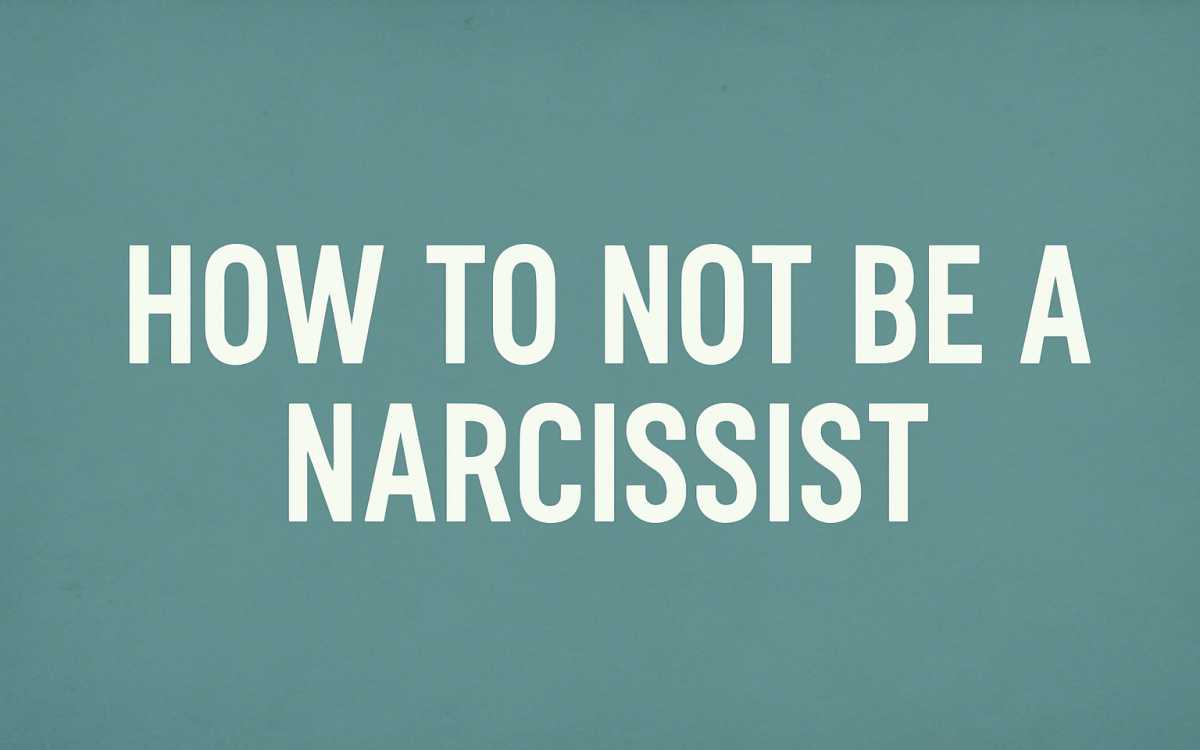We hear the word “narcissism” a lot in pop culture, but its real meaning is much deeper than the over-the-top ways it is shown in movies and TV shows. Narcissism is basically having an overblown feeling of self-importance, a strong desire for praise, and a lack of concern for other people. People that are narcissistic typically have trouble making real, healthy connections with others since they are always looking inward and don’t have much place for others. This article will talk about how to not be a narcissist by giving you real measures to take to get over your narcissism and develop a more caring, self-aware way of thinking.
What is Narcissism?
Before we can talk about how to not be a narcissist, we need to know what narcissism really is. The word “narcissist” comes from the Greek story of Narcissus, a young man who fell in love with his own image. This myth may be an extreme example, but modern narcissism is based on deep-seated insecurity that is hidden by arrogance and a fixation on one’s appearance. Narcissistic Personality Disorder (NPD) is a real mental illness, however a lot of people show narcissistic features to some degree, even if they don’t fit all the criteria for NPD.
Narcissism can be seen as a way to protect oneself, and it often comes from things that happened in infancy. A lot of narcissists do things to safeguard their weak self-esteem by pushing people away or controlling them. But these actions typically backfire, leaving the person alone, anxious, and unhappy.
Related Article: Signs of a Narcissistic Woman
Recognize the Problem: Be Aware and Reflect on Yourself
Admitting that narcissism exists is the first step toward getting over it. Narcissism often grows in denial, when people think that what they do, think, and feel is right. To become more self-aware, you need to be honest with yourself and be able to see how your actions affect other people without getting defensive.
It’s quite important to think about yourself here. To begin, ask yourself questions like, “How often do I think about how other people see me?” or Do I find it hard to understand how people feel when they talk about it? Writing in a journal can help you with this since it lets you see how your thoughts and actions change over time and find patterns that show narcissistic behavior.

Cultivating Empathy: How to Make Your Relationships Better
Learning to understand how other people feel is one of the most crucial things you can do to get over narcissism. Narcissists generally don’t really understand or care about how other people feel, but learning to be empathetic is an important step toward building deeper, more meaningful connections.
Putting oneself in someone else’s shoes and really getting what they are going through is what empathy is all about. To start developing empathy, make an effort to really listen when you talk to someone. Instead than focusing about what you’re going to say next, pay attention to what the other person is saying and how they feel. Ask questions that demonstrate you care about how they feel, and agree with what they say, even if you don’t always agree with them. Small acts of kindness, like recognizing someone’s grief or praising their accomplishment, can change the way you interact with each other in a big way.
Related Article: How Can I Stop Being a Narcissist?
Stop Seeking Validation – Strengthening Self-Esteem from Within
The continual demand for outside approval is a big part of narcissism. Narcissists typically look for praise, acceptance, and adoration from other people to boost their low self-esteem. Sadly, this persistent need for approval just makes people feel hollow in the long term.
To get over narcissism, you need to work on boosting your self-esteem from the inside out. Be kind to yourself and remember that what other people think of you doesn’t matter. Do things that make you feel good about yourself and fulfilled, not because they will get you attention, but because they are true to who you are. Be proud of what you’ve done, but don’t judge yourself for your imperfections or places where you could improve.
You may stop relying on other people for self-worth by learning to love yourself for who you are without needing continual confirmation. This can be an uplifting practice that makes you feel better about yourself and more stable emotionally.
Challenge Your Entitlement – Developing Humility
People with narcissistic traits typically think they deserve special treatment and may think they are more important than they really are. Because they feel entitled, they may not care about what others need or what their boundaries are. To get over narcissism, you need to question these ideas and be humble.
Being humble is knowing that your contributions are important, yet you are not better than others. Everyone has things they are good at and things they are not good at, and everyone has to deal with failure or trouble at some point. When you accept humility, you stop thinking that you deserve things and start to develop an attitude of respect and empathy for others.
Related Article: Empaths and Narcissists
Seek Professional Help – Therapy and Support
Self-help techniques can work, but getting rid of narcissism can be hard, especially when narcissistic traits are strongly ingrained. People can work on their narcissistic habits and learn healthier ways of thinking and interacting with others through therapy, especially cognitive-behavioral therapy (CBT).
A therapist can help you figure out what causes your narcissism, including trauma from childhood or feelings of inadequacy, and help you find ways to deal with it so that you can have healthy relationships. Therapy can also help you learn how to be more empathetic, control your emotions, and be more aware of yourself.
Let Go of the Need for Control – Accepting Imperfection
People with narcissism typically have trouble with control because they want to be in charge of circumstances to maintain their self-image. They might be afraid of being vulnerable or think of it as a weakness. One crucial step in getting over narcissism is to stop needing to be in charge.
It’s freeing to realize that you don’t have to be flawless or in charge all the time. Accept your flaws and know that being open and honest may make you stronger, not weaker. You make room for growth and deeper, more real connections when you stop trying to control everything and learn to accept yourself and others as they are.
Practice Gratitude – Shifting Focus Toward Others
Being thankful is another good approach to get over narcissism. People with narcissism tend to be self-centered and only think about what they want or what they think they deserve, not what they already have. Being thankful might help you feel more connected to others by changing your focus from “me” to “we.”
Write down things you’re glad for every day in a gratitude journal. Don’t just think about your monetary or outward triumphs; also think about the people and situations that make you happy. You start to see the world in a more compassionate and grateful way when you recognize and show thankfulness. This helps you move away from being self-centered.
Conclusion: A Journey Toward a Healthier You
It’s not simple to get over narcissism, but it’s a good step toward having better relationships and being more true to yourself. You can make real progress toward personal growth by admitting that you have narcissistic tendencies, developing empathy, letting go of the need for constant affirmation, and getting professional help when you need it. Keep in mind that this is not about being flawless; it’s about making progress. You will feel more connected to other people and live a more happy, balanced life as you concentrate on getting over your narcissism.
If you’re serious about the question, “How to not be a narcissist?” remember that change is possible. It starts with self-awareness and the willingness to improve, one step at a time.
